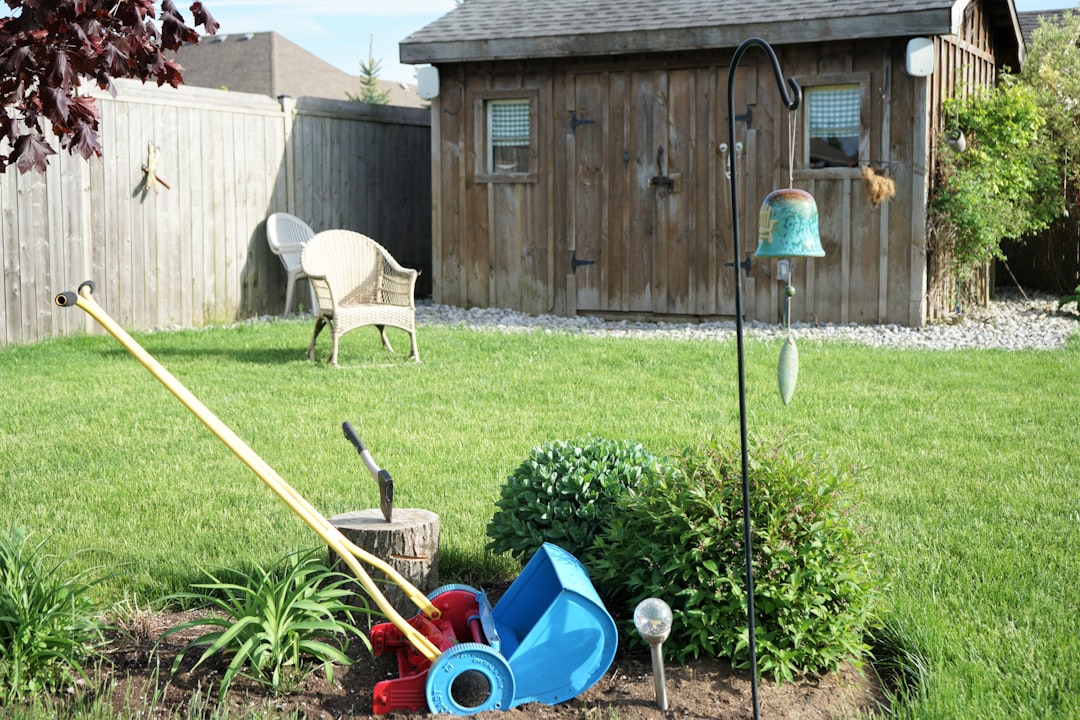The Secret to a Thriving Yard: Proper Mulching

Maintaining a beautiful and healthy yard is a goal for many homeowners. One of the often - overlooked yet crucial aspects of yard care is mulching. Knowing how to mulch correctly, and how much mulch to use, can significantly impact the well - being of your grass, flowers, and trees.
Mulch is a protective layer that you spread over the soil in your garden. It serves multiple purposes, and understanding these can help you make the most of this simple yet powerful gardening technique. First and foremost, mulch helps to conserve moisture in the soil. In hot and dry weather, the sun can quickly evaporate the water from the soil, leaving your plants parched. A layer of mulch acts as a barrier, reducing the rate of evaporation and keeping the soil moist for longer periods. This means you won't have to water your plants as frequently, saving both time and water resources.
Another important function of mulch is to control weeds. Weeds are the bane of every gardener's existence. They compete with your plants for nutrients, water, and sunlight. By covering the soil with mulch, you block out the sunlight that weeds need to grow. This makes it much more difficult for them to germinate and establish themselves in your garden. As a result, you'll spend less time pulling weeds and more time enjoying your beautiful yard.
Temperature regulation is also a key benefit of mulch. During the summer, mulch can keep the soil cooler by shielding it from the intense heat of the sun. In the winter, it acts as an insulator, protecting the roots of your plants from freezing temperatures. This is especially important for delicate plants and young trees that may be more susceptible to extreme temperature changes.
Now, let's talk about how to mulch correctly. The first step is to choose the right type of mulch. There are two main categories of mulch: organic and inorganic. Organic mulches, such as wood chips, bark, straw, and compost, break down over time and add nutrients to the soil. They also improve the soil structure, making it more porous and better able to hold water and air. Inorganic mulches, like gravel, stones, and landscape fabric, do not break down and are more long - lasting. They are often used in areas where you want a more permanent mulch layer, such as around trees or in rock gardens.
Before applying mulch, it's important to prepare the soil. Remove any existing weeds and debris from the area. You can also loosen the top layer of soil with a garden fork to improve water infiltration. Once the soil is ready, spread the mulch evenly over the area. For most plants, a layer of 2 - 4 inches of mulch is sufficient. However, be careful not to pile the mulch too high against the trunks of trees or the stems of plants, as this can cause moisture to accumulate and lead to rot.
How much mulch you need depends on the size of the area you're mulching. To calculate the amount of mulch required, measure the length and width of the area in feet. Multiply these two numbers to get the square footage. Then, divide the desired depth of mulch (in inches) by 12 to convert it to feet. Multiply the square footage by the depth in feet to get the cubic feet of mulch needed. You can then convert cubic feet to cubic yards if necessary, as mulch is often sold in cubic yards.
It's also important to maintain your mulch over time. As organic mulches break down, they will need to be replenished. Check the mulch layer regularly and add more as needed to maintain the desired depth. You may also need to rake the mulch occasionally to keep it evenly distributed and to prevent it from matting down.
In addition to the basic benefits, mulch can also enhance the aesthetic appeal of your yard. A well - mulched garden looks neat and tidy, and the different colors and textures of mulch can add visual interest. You can use different types of mulch in different areas of your yard to create a variety of looks.
In conclusion, proper mulching is an essential part of caring for your yard. By understanding how to mulch correctly and how much mulch to use, you can keep your grass, flowers, and trees healthy, reduce weed growth, conserve water, and improve the overall appearance of your outdoor space. So, the next time you're working in your garden, don't forget to give your plants the gift of mulch.